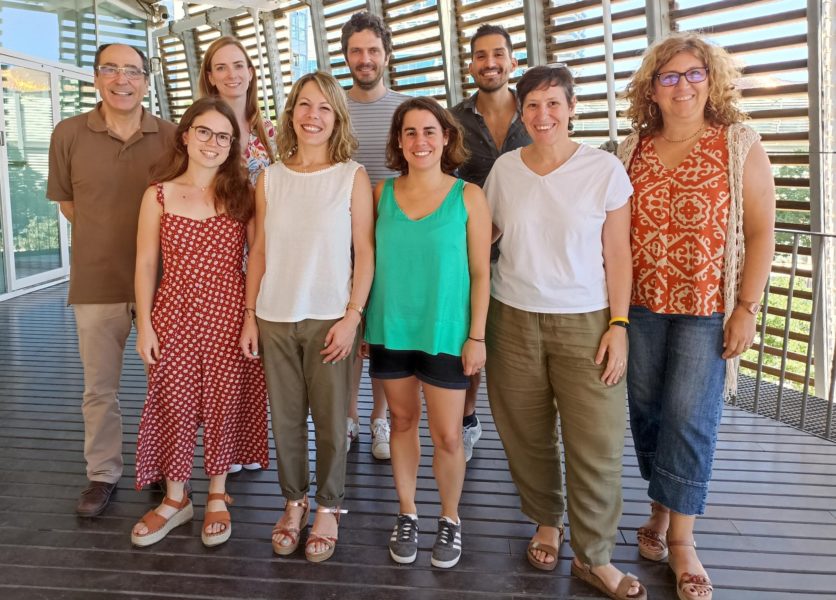It seems that the Covid-19 pandemic has helped to put mental health in the spotlight even more than it already was in recent years. So much so that mental disorders and suicide prevention and online preventive interventions are a priority for the European Union and the World Health Organization.
In academia, the situation is worrying. Poor mental health – symptoms of depression, anxiety, harmful alcohol consumption or suicidal ideation – in university students represents a major public health burden, as determined by the recent UniverSal (University and Mental Health, in Spanish) study, led by Jordi Alonso, director of the Epidemiology and Public Health Program at the Hospital del Mar Medical Research Institute (IMIM).
According to the UniverSal study, 36% of first-year undergraduate students had a mental disorder.
The UniverSal project, in which 5 Spanish universities from 5 Autonomous Communities participated, estimated a high frequency of mental disorders and suicidal thoughts and behaviors among first-year university students in Spain: 36% had some mental disorder – the most prevalent problems being depression (19%) and anxiety (16%) – and almost 10% reported suicidal ideation. In addition, only 12.6% of people with a mental disorder reported receiving treatment.
Now, the same research team has embarked on a new project, PROMES-U, to go a step further in studying the factors that may influence this poor mental health, as well as trying to implement prevention measures.
We spoke with researcher Laura Ballester and PhD student Ana Portillo about this new study.

Are university students a particularly vulnerable group?
We know that the pandemic has had a particularly strong impact on young people, due to the loss of sociability, which is very important in this period. In fact, mental disorders are frequent in this population and suicide is the second leading cause of death worldwide among young people.
In addition, the university period is a high-risk period for the development of mental health problems: apart from the considerable academic pressure, it includes the relative freedom from parental control, the ongoing exploration of identity, the delay in gaining financial independence, and the postponement of stable relationships or parenthood.
What are the specific objectives of PROMES-U?
This project seeks to go a step beyond UniverSal. It is aimed at the entire student community of the 5 participating universities (from 4 Autonomous Communities). The following objectives have been set:
- personalized prediction of the risk of poor mental health in students, focusing on the associated short and long term risk and protective factors
- to implement and evaluate interventions for the promotion of mental health through the return of personalized reports on mental health and an online intervention for the prevention of mental disorders
“Much of the information will be comparable to that resulting from the previous UNIVERSAL study, and will allow us to identify differences in the mental health of students before and after the COVID-19 pandemic”
And how are you going to achieve this?
In this academic year, an online questionnaire on mental health and associated risk or protective factors has been distributed. At the end of this questionnaire, participants can download a personal feedback report on their mental health, healthy lifestyle habits, effective treatment options and available mental health care services.
In addition, a more comprehensive assessment via mobile was administered to a subgroup of participants – with questions asked several times a day for 2 weeks about stress, lifestyle habits, symptoms of depression and anxiety at the time of the question, as well as a daily assessment of sleep quality, and a more general questionnaire at the end of the 2 weeks.
In these first phases we have had a participation of more than 2,400 students. In the next academic year, we plan to do a follow-up online questionnaire with these same individuals and to implement an online mental health prevention intervention for all new students at the 5 universities.
How do you reach students?
Participation is restricted by the following inclusion criteria:
- Being over 18 years old
- Being enrolled in a degree program at the participating universities: Universitat de les Illes Balears (UIB), Universitat Jaume I (UJI), Universidad Miguel Hernández (UMH), Universitat Pompeu Fabra (UPF) or Universidad de Zaragoza (Unizar)
Participants can access the questionnaire in several ways:
- invitation by e-mail at 3 of the universities
- link on the project website
- Instagram account of the project
- QR code on the advertising posters within the participating universities
Once the questionnaire is accessed, control questions are asked to confirm the criteria for inclusion in the study.
And what kind of questions do you ask?
Both the online questionnaire and the assessment via mobile collect information on risk and protective factors for the onset and persistence of mental health problems. These include: family aspects, family mental disorders, childhood adversities, more recent stressful experiences (emotional, health, bullying/abuse, etc…), as well as quality of social, family and peer support, and health-related habits: sleep, physical activity, diet and leisure.
Thank you very much, we encourage the students to participate, and good luck in this important study!







